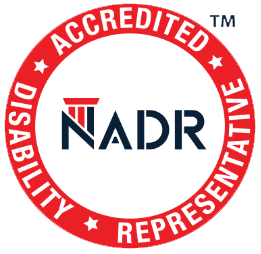If you have a disability that has made it impossible to work for at least 12 months, or if you’re over 65, you could be eligible to receive Social Security Administration (SSA) disability benefits. As with other programs that the government handles, applying for and receiving the benefits can be more complex than it first appears.
Recently, the Social Security Administration made significant updates to these disability benefits. Here is what you need to know about these updates and what they mean for you.
Navigating the complex world of disability benefits can be overwhelming, especially when you’re dealing with health challenges. The complexities involved in understanding eligibility criteria, the application process, and the various types of disability benefits available can often seem like an insurmountable task. Having access to clear and reliable information, as well as expert guidance, can make a world of difference. The role of a disability representative is to support and assist individuals in winning their disability cases.
Read more →Living with a mental illness can significantly impact a person’s life, making it challenging to maintain employment and carry out daily activities. Recognizing these difficulties, the United States provides disability benefits to individuals with mental health conditions. Disability Support Services (DSS) of Maryland aims to provide an overview of disability benefits for mental illness, including the types of benefits available, eligibility criteria, and the application process. Understanding your rights and options can help you access the support you need to navigate your mental health journey.
Read more →What is a Representative Payee, and how do they help? A representative payee is a person or an organization appointed by the Social Security Administration (SSA) to manage Social Security, Supplemental Security Income (SSI), or retirement benefits. A representative payee helps manage the benefit finances for individuals that have a disability (physical or mental limitations), seniors, or in some cases, children. It will help to understand what the SSA is and what benefits they administer. Read on to learn the role of the representative payee.
Read more →Social security disability insurance (SSDI) and supplemental security income (SSI) are federal programs designed to provide financial support for persons with disabilities. When you apply for Social Security disability, it’s crucial to complete the paperwork correctly. You also need to provide supporting documents for your claim to be approved. The timing of your SSDI/SSI application is also important. This guide provides the facts to help you through your application process.
Read more →How To Apply For Social Security Disability With Cerebral Palsy Cerebral Palsy or CP describes a group of nervous system problems typically diagnosed at birth or soon after. The types of CP and impairments vary from person to person. Therefore social security benefits are not a given
Read more →The SSA has a page dedicated to the update of COVID-19 economic impact payment and what that means for social security recipients. In it, they have an updated Economic Impact Payments (PDF) that outlines commonly asked questions. To help SSDI and SSI recipients with this PDF, DSS has created this easy to use infographic. It is a flow chart that outlines what to expect. Keep scrolling to see additional information.
Read more →Living on a fixed income, like Social Security Income (SSI), can be challenging. It’s even more difficult when your income fails to keep up with the cost of living and housing expenses. However, The Supplemental Security Income Restoration Act could change this. The act aims to increase income and resource limits for individuals who are on SSI. This is critical for keeping up with inflation. Continue on to learn more about the changes in SSI benefits.
Read more →Roughly 10,000 baby boomers reach retirement age each day, which is above the U.S. average. If you are retired or you’re counting the days when you leave your full-time job, Social Security should be your biggest concern. It’s a fundamental part of your retirement income. As a result, it’s important to stay up to date on the COLA for the year 2020. However, before we dive into details, let’s find out what COLA entails.
Read more →





![Economic Impact Payments for SSDI and SSI Recipients [Infographic]](https://www.dssmd.com/wp-content/uploads/2023/06/DSS_04_EconomicImpact-570x172_c.png)





